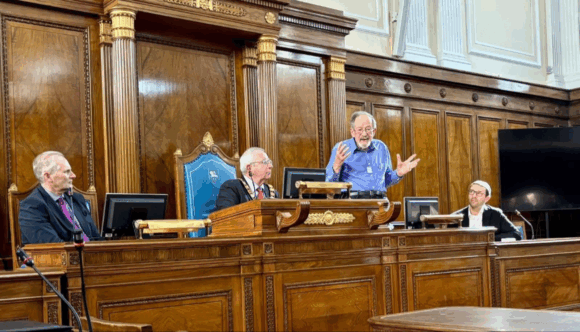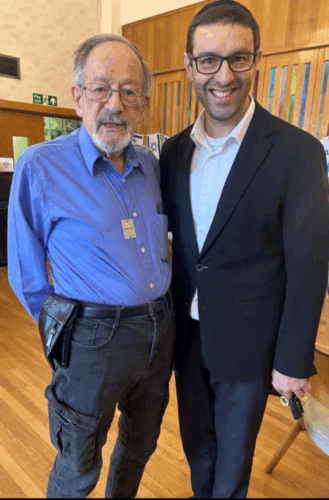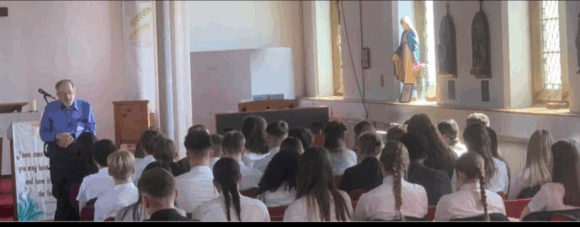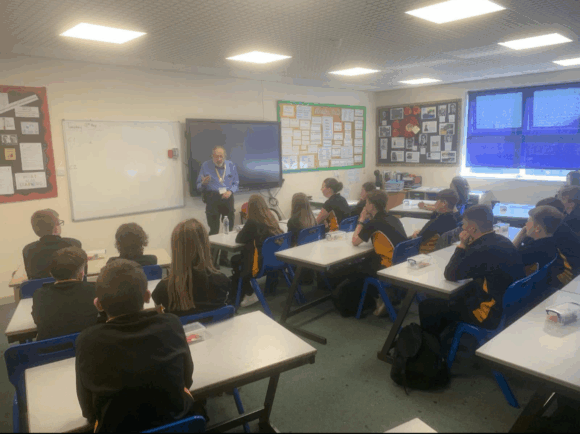
Holocaust survivor and educator, Dr Martin Stern MBE came to Lancashire from London on a two-day tour.
The tour was facilitated by Rabbi Danny Bergson of St Anne’s Hebrew Congregation and Stakeholder and Engagement Manager of the Jewish Representative Council of Greater Manchester & Region.
He spoke at St Anne’s Hebrew Congregation, Preston City Council, Baines High School and St Mary’s Catholic High School of Blackpool (children aged 14-17).
Dr Stern is a retired Clinical immunologist who worked at the University Hospitals of Leicester. As a child he was transported with his one-year-old sister to the Westerbork prison camp in The Netherlands and then to the Thereisenstadt Getto north of Prague.
Both survived due to the care of a woman prisoner who took them under her wing. his father died in Buchenwald Concentration Camp, having passed through Auschwitz. his uncle died in Auschwitz and his grandfather also died in Nazi captivity.
The man in The Netherlands who hid Martin from the Nazis and looked after him alongside his wife for one-and-a-half years was discovered, arrested, interrogated and killed. Only his spectacles and a fake death certificate were returned to his wife.
Since retiring from medicine in 2002, Dr Stern dedicates his time to Holocaust and genocide education working at The National Holocaust Museum in Laxton, Nottinghamshire with the Holocaust Education Trust and with the National Holocaust Memorial Day Trust.
Rabbi Bergson commented “It was an utter privilege and honour to bring Dr Stern to speak to diverse audiences. The Fylde Coast and Preston rarely have this opportunity to meet survivors and have reached a critical point where so few survivors remain alive and able to share their experiences to a younger generation. Martin is one of a select few who travel the country to areas that have never heard a survivor’s account before. All who hear Martin come away not only moved by his personal story of loss, resilience and recovery but also provoked to think deeply and challenge many of the assumptions we make about human nature and the capacity for evil.”



